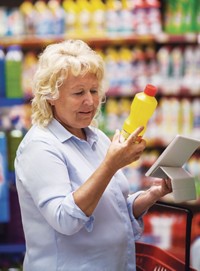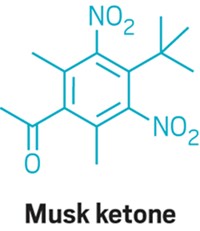Advertisement
Grab your lab coat. Let's get started
Welcome!
Welcome!
Create an account below to get 6 C&EN articles per month, receive newsletters and more - all free.
It seems this is your first time logging in online. Please enter the following information to continue.
As an ACS member you automatically get access to this site. All we need is few more details to create your reading experience.
Not you? Sign in with a different account.
Not you? Sign in with a different account.
ERROR 1
ERROR 1
ERROR 2
ERROR 2
ERROR 2
ERROR 2
ERROR 2
Password and Confirm password must match.
If you have an ACS member number, please enter it here so we can link this account to your membership. (optional)
ERROR 2
ACS values your privacy. By submitting your information, you are gaining access to C&EN and subscribing to our weekly newsletter. We use the information you provide to make your reading experience better, and we will never sell your data to third party members.
Business
Environmental Working Group Launches Cosmetics Verification Program
Branding program is intended to help consumers avoid toxic ingredients
by Marc S. Reisch
November 9, 2015
| A version of this story appeared in
Volume 93, Issue 44
The Environmental Working Group, an activist organization, has launched a verification seal for personal care products intended to help consumers avoid toxic chemicals and contaminants that it says are commonly found in cosmetics.
The seal, known as EWG Verified, will make shopping “easier for overwhelmed consumers who want to quickly find a bottle of shampoo or a tube of toothpaste that is better for their health,” says Ken Cook, the group’s president. Two small cosmetic makers, Beautycounter and MyChelle Dermaceuticals, will be the first program participants.
Products eligible for the mark cannot contain probable reproductive, carcinogenic, or environment-damaging toxins, EWG says. Among the ingredients the group proscribes are paraben preservatives and nitro- and polycyclic musk fragrance ingredients, all of which it considers suspected endocrine disruptors.
However, personal care products that include synthetic chemicals aren’t automatically barred from receiving the EWG seal. Although sunscreen formulas aren’t covered in the new verification program, the group has argued in favor of certain synthetic sunscreen ingredients permitted in Europe but not allowed in the U.S.
Seal-eligible products must also meet other criteria such as scoring high in EWG’s Skin Deep cosmetics database and fully disclosing ingredients on packaging labels. Only products that “meet our robust criteria, as opposed to minimal government standards,” are eligible to receive the mark, says Nneka Leiba, the group’s deputy director of research.
Leiba says she hopes the program will spur development of safer products. If successful, the group plans to roll out the program to other goods it tracks such as cleaners and food.




Join the conversation
Contact the reporter
Submit a Letter to the Editor for publication
Engage with us on Twitter